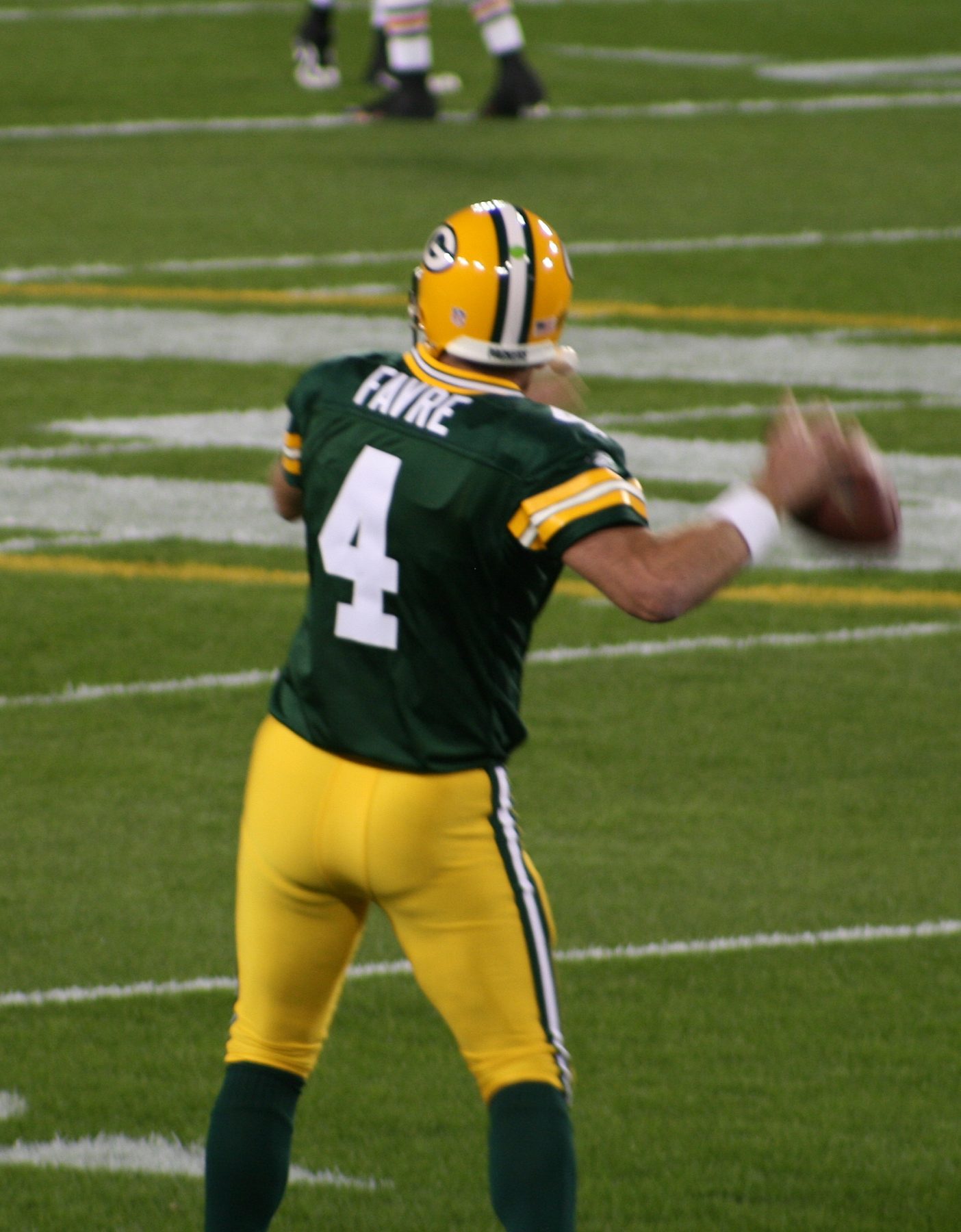It is very, very easy to forget that football players are humans. These men, often gargantuan in size, are hidden under layers of protective padding and covering. Facemasks and visors hide their countenance from viewers, who often see them as nothing more than a number on the field. Aside from the occasional commercial, one might never know the men behind the masks, who risk themselves daily in today’s answer to the gladiatorial fights of antiquity. Even the heroes of the game are not immune to this. The game’s stars, while obviously spending their days in the limelight, are still only viewed in the context of their gameplay. Anything that doesn’t take place on the gridiron is a secondary thought to the fans.That is, until something happens, and a player who could once hide behind his helmet and pads is thrust into public scrutiny, every detail of his life to be examined.
This generally happens for negative reasons; it is hard to pity the Michael Vicks of the world for their time spent in the circus- like vortex that is modern sports media. In other instances, though, one’s heart goes out to the men who are forced to navigate life decisions with the entire nation staring down their backs. In the summer of 2009, ESPN parked a van outside of Brett Favre’s Mississippi home so that they could easily handle the coverage of what they made a 24- hour spectacle of the legendary quarterback’s potential retirement.
Last week, Favre was selected on the first ballot into the Pro Football Hall of Fame. The quarterback will be remembered as a Green Bay Packer in Canton; there was never a doubt that this would happen. Still, his time spent on the New York Jets and the Minnesota Vikings shouldn’t be forgotten, since it represents the hardest challenge that most players face in their career: knowing when to stop playing. A player can spend every free second lifting weights or watching film to prepare for a game, but it won’t do anything to help him face the ultimate decision of acknowledging that enough is enough.
There is no doubt that Favre will be remembered for his play on the field. His seemingly impossible touchdown throws and the passing yards he racked up stand as a testament to the man’s ability to play football. Even after this, though, any mention of his name comes with the memory of the awkward feeling of seeing him in a jersey other than that of the Packers. One can’t help but look back and think that such a legend deserved more in his final days in the NFL. What should have been a farewell tour and a hero’s send- off from Lambeau field was instead the media camped on his front lawn and his inability to pass a concussion test in his final game. Some of this is certainly his doing, and yet it is hard to not look back on this with a sense of sadness.
What is it about the retirement of players that fascinates us so much? Perhaps it’s that we’re simply thinking about our teams. No fan wants to see a superstar player leave their team, and the prospect of a franchise without their star player is frightening. This isn’t the whole answer, however. To some, it is an acceptance of growing up. To many avid fans, it is not until the players that we grow up idolizing decide that their time is done that the passing of time truly becomes apparent (ask any Yankees fan under the age of 25 about this effect). In the same way that we are affected by the players who end their careers, we fear those who seem to stay around too long. It is often with a sense of pity that fans look on those superstars who struggle in their final time spent in the game. Like an aging loved one, witnessing an idol as they struggle can be crushing.
Around the same time that Brett Favre was elected into the Hall of Fame, news broke that star wide receiver Calvin Johnson would be retiring; 2015 would be his final season. This was followed by news that Marshawn Lynch, Super Bowl- winning running back for the Seattle Seahawks, would be retiring too. These two players chose to take a drastically different path than Favre. There is no doubt that both Megatron and Beast Mode (as Johnson and Lynch are known, respectively) could continue to compete and perform at the highest level. Both men would be excellent additions to any offense in the league. They, however, had different plans. Johnson cites the physical toll that the game is taking on his body, and it is hard to blame him for this. Our desire to see spectacular endzone catches certainly pales in comparison with Johnson’s desire to be able to walk at the age of 50, something that may not happen if he continues to take brutalizing hits.
The stories of Lynch and Johnson’s retirements are very telling of the lack of humanity they are viewed with. The fans that are shocked expected them to run their bodies into the ground, taking hit after hit for the purposes of entertainment, all while retiring at the perfect time when their performance wouldn’t drop too low. By retiring when they did, these two men took control of their lives, health, and futures, and should be lauded for it. The final parts of their career were dictated on their own terms, and the wisdom in this decision is apparent.
All of this leads to the final NFL storyline involving potential retirement this week. On Sunday, February 7, legendary quarterback Peyton Manning won his second Super Bowl. While his performance may have been weak and Denver owes much of the credit to its defense, there is no question that the second ring has further bolstered the already bloated list of accomplishments that the quarterback can lay claim to. Before the game, Peyton hinted that it would be his last, although he refused to give an answer when directly asked whether he would be retiring this offseason. This decision is entirely up to Peyton and his family. Only he knows how much more his body can take and what skills he still holds, and I would be a hypocrite for telling the man what he should do in this situation. I can, though, offer a bit of advice. Look to the decisions and outcomes of other players who already went through this. One option offers the assurance of going out on one’s own terms; in Peyton’s case this means going out a champion. The other is a gamble, with even more on the line since the end of a career will always be remembered by the public.
Peyton has nothing left he needs to prove to us. The Sheriff is one of the best to ever play the position (a different argument for a different day). No further amount of time in the league can take away from that point. Instead, his decision will tell us more about the person he is than the player he is. After all, it is only once the helmet comes off that the fans can view the human that exists underneath.






Tom Brady=G.O.A.T.